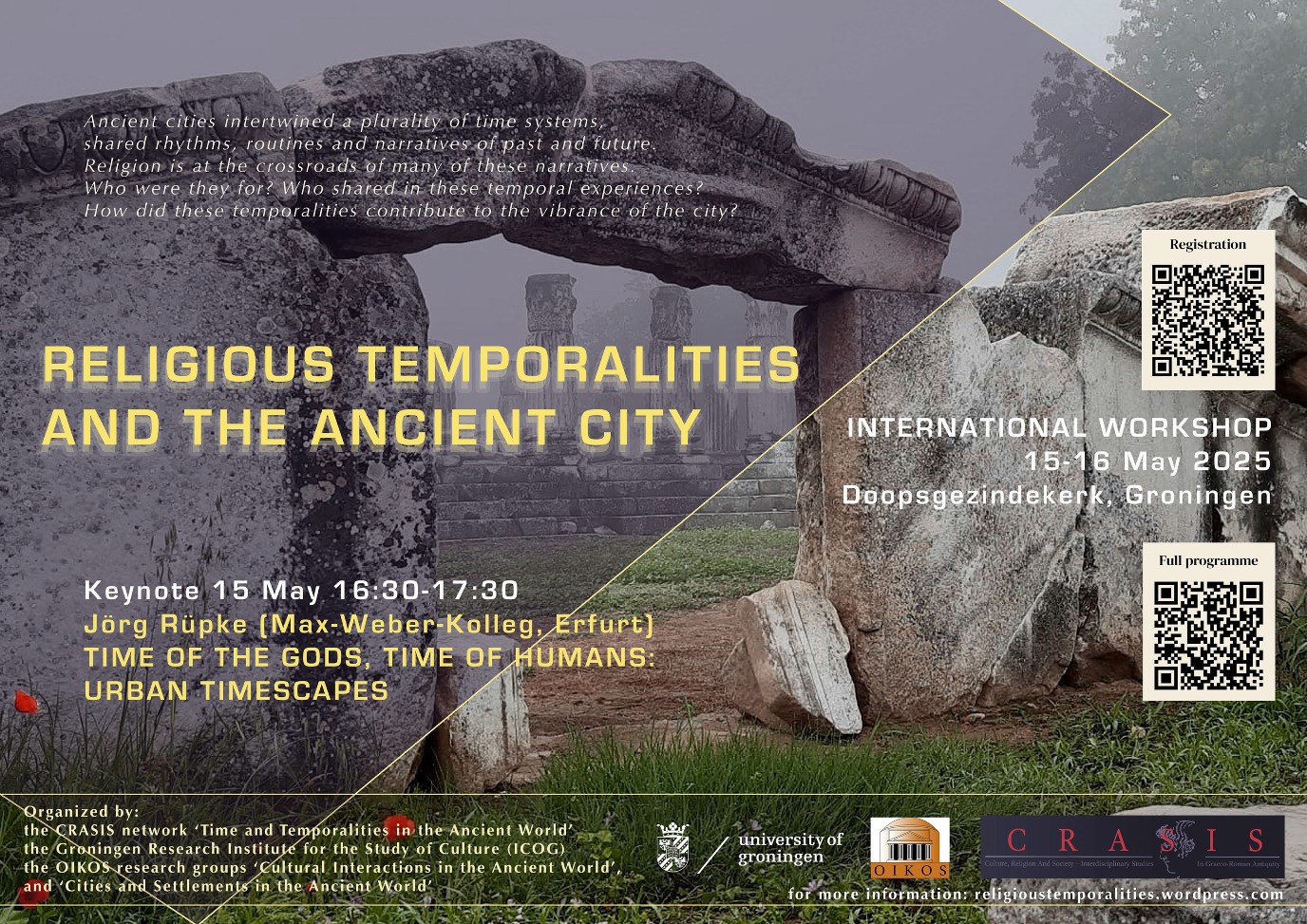Religious Temporalities and the Ancient City - international workshop
Ancient cities brought together a plurality of time systems such as calendars, shared rhythms and routines, narratives of the past and future, mixing the quotidian with the profound in a spatio-temporal continuum. Religion is at the crossroads of many of these urban temporalities. Rituals regulated the days, months, and seasons of human time, with transregional ‘panhellenic’ festivals synchronizing cities across the Mediterranean. Yet festivals also had a transcendent capacity of lifting the individual out of the everyday, creating ‘atemporal’ spaces in the city, but especially ‘atemporal’ communities that extended beyond the boundaries of the living and the dead. Who belonged to these temporal communities? Where were their timescapes located, how did they shape urban space? Which religious temporalities outlined the contours of civic identity?
This workshop brings together scholars from across the world, and at different career stages, to focus on the role of religion and time in creating a multivalent sense of the city.
Full programme on the website religioustemporalities.wordpress.com
Keynote lecture: Thursday 15 May, 16:30-17:30
Prof dr Jörg Rüpke (Max-Weber-Kolleg, Universität Erfurt)
“Time of the Gods, Time of Humans: Urban Timescapes”
Urban life in all its diversity involves a multitude of different time experiences and concepts of time, by different rhythms, timings, and tempos, necessitating coordination. Timekeeping is an urban development, and religious actors were often time specialists, while stressing the ambivalence of human time in view of the eternal.
Prof dr Jörg Rüpke is co-director of the Max-Weber-Kolleg in Erfurt and of the KFG project ‘Religion and Urbanity: reciprocal formations’. Previous projects include ‘Lived Ancient Religion: questioning cults and ‘polis religion’’. Author of the Fasti sacerdotum (2005) and Pantheon: A New History of Roman Religion (2018), he has published extensively on urban and religious temporalities.
Registration
Anyone interested in the topic is welcome. In connection with the catering, we ask that you indicate your attendance for one or both days via the registration form, and whether you will join for the lunches (10 EUR per day). Register by 12 May via this link, or via the website.
For more information, see the website: religioustemporalities.wordpress.com
or contact one of the organisers:
-
Pim Schievink (RUG): p.schievink rug.nl
-
Christina Williamson (RUG): c.g.williamson rug.nl
-
Sofie Remijssen (UvA): s.m.j.remijsen uva.nl
This workshop is hosted via the CRASIS network ‘Time and Temporalities in the Ancient World’, with additional support from the Groningen Research Institute for the Study of Culture (ICOG), the OIKOS research groups ‘Cultural Interactions in the Ancient World’ and ‘Cities and Settlements in the Ancient World’, and the Netherlands Institute for the Near East (NINO).

